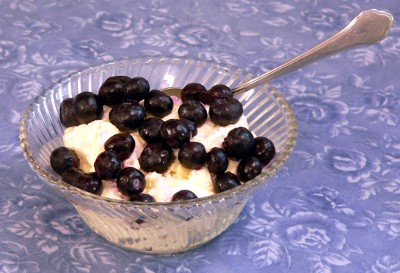
Ricotta is a soft cheese that you can easily make at home. It is excellent eaten fresh with fruit, or you can use it in baked dishes like lasagna or baked ziti.
The recipe below, based on whole milk, is one of the simplest ways to make ricotta cheese. In our one day soft cheese making class, we teach another approach, where you first make fresh mozzarella, then make ricotta from the leftover whey.
This recipe makes about 1 3/4 pounds or 4 cups of ricotta.
Ingredients
- 1 gallon whole milk
- 1 teaspoon salt
- 1 teaspoon citric acid
Instructions
Combine the milk, salt and citric acid in a large stainless steel pot, and mix the ingredients thoroughly.
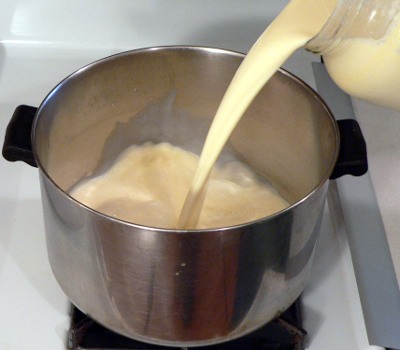
Heat the mixture over medium heat on the stove top, stirring very gently to prevent scorching. Be careful not to stir too much because that will cause the curds to be too fine. Heat until the temperature reaches 195 degrees (F), but don’t allow the milk to boil. By the time the mixture reaches 195 degrees (F), the curds should have begun to separate from the whey. When this happens, turn off the heat and let sit for 5 minutes.
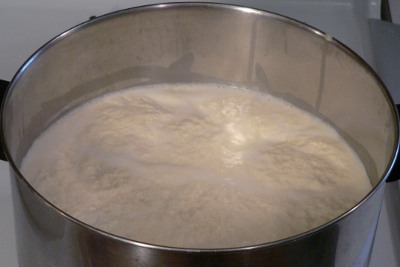
Line a colander with butter muslin or fine mesh cheesecloth and set it in the sink (or in a pot, if you want to save the whey). Scoop the curds and whey using a two cup measure and gently pour them into the colander.
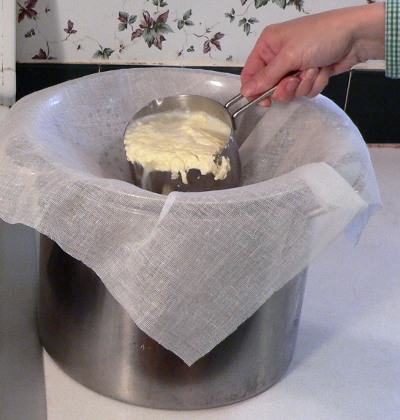
Drain the curds until they are the consistency you want. The longer you allow them to drain, the drier your ricotta will be. You can eat it right away or store it in the refrigerator for up to two weeks. It also freezes well.
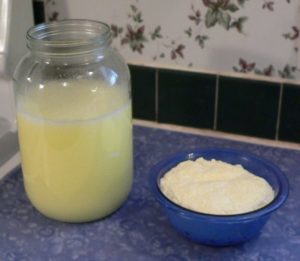

Hello Rebecca, I attended the cheese classes you offered a couple of years ago along with my sister and mom. I have a question. All my cheeses look good, texture is fine, but I am somewhat disappointted in the taste, or rather lack of taste. I feed a good grain, and grass so I don’t think it is the feed. My mozerella is ok, but again something is missing. Can you tell my what Lipase does to cheese? or “Enzymes” I have a very sensitive nose and can detect when it just isn’t right. I think of ya’ll often and keep up with all the awards you have been getting. Good luck, Blessings, Debbie
A lot of the taste in soft cheeses come from the amount of salt you add, or the length of time it sits, depending on the recipe. For your mozzarella, you might want to try stretching it in salt water. If that doesn’t help, add a little salt to the mozzarella while you are stretching it. Just sprinkle it on the surface. For hard cheese, the taste has to do with how long your cheese ages. The flavor doesn’t start to fully develop until at least 7 weeks in hard cheese, so make sure that you are aging them at least that long. Lipase is an enzyme that is commonly added to Parmesan and Feta to help produce the sharp flavor. Both rennet and lipase are enzymes, and are often listed on cheese labels as “cheese enzymes”, but are not something that you purchase separately to add to your cheese. Hope this helps.